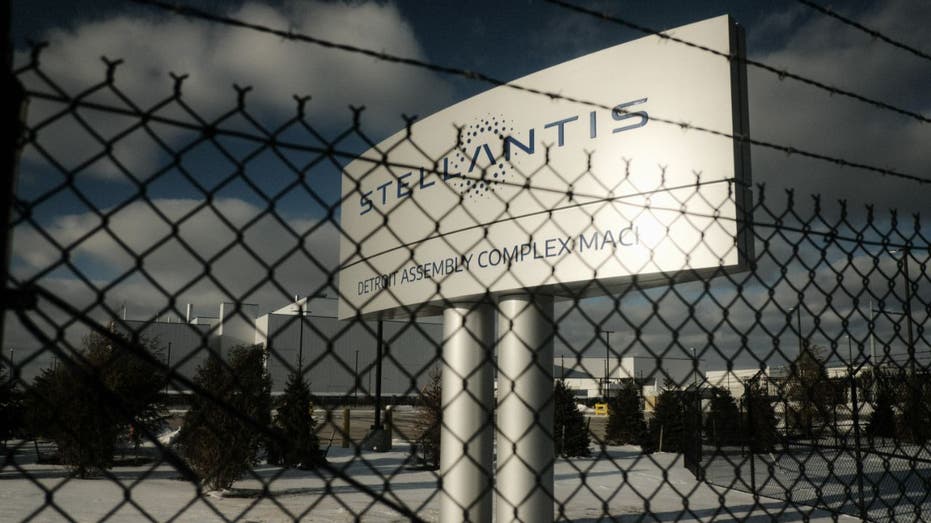Stellantis to lay off thousands at Jeep plants, blames California emissions regulations
Thousands of Stellantis workers at Jeep plants in Michigan and Ohio face losing their jobs
California Gov. Gavin Newsom tests out new electric vehicle
California Gov. Gavin Newsom tests out BYD's new electric vehicle
Stellantis says layoffs are coming to two of its U.S. Jeep assembly plants, with potentially thousands of workers losing their jobs early next year, and blamed the move in part on California's emissions rules.

Signage outside the Stellantis Mack Assembly Plant in Detroit. (Matthew Hatcher/Bloomberg via Getty Images / Getty Images)
The automaker announced in a media release it is altering production patterns at its Detroit Assembly Complex – Mack in Michigan and its Toledo Assembly Complex in Ohio "in part because of the need to manage sales of the vehicles they produce to comply with California emissions regulations that are measured on a state-by-state basis."
The Mack plant will temporarily move from operating three shifts to two, and the Toledo facility move from its current alternative work schedule to a two-shift pattern that was agreed upon during Stellantis' recent contract agreement with the United Auto Workers (UAW) union. The company said both changes "will result in job losses."

The Stellantis sign is seen outside the Chrysler Technology Center in Auburn Hills, Michigan. (AP Photo/Carlos Osorio, File / AP Images)
| Ticker | Security | Last | Change | Change % |
|---|---|---|---|---|
| STLA | STELLANTIS NV | 7.30 | +0.04 | +0.62% |
Stellantis NV
Stellantis spokesperson Jodi Tinson told the Detroit Free Press as many as 2,455 workers could be affected at the Detroit plant and another 1,225 at the Toledo facility. The layoffs will start as early as Feb. 5.
In a separate move earlier this week, Stellantis filed a petition accusing the California Air Resources Board (CARB) of retaliating against the company through an "underground regulatory scheme" that put it at a competitive disadvantage to rivals like Ford, The Detroit News reported.
| Ticker | Security | Last | Change | Change % |
|---|---|---|---|---|
| F | FORD MOTOR CO. | 13.59 | -0.21 | -1.52% |
Ford Motor Co.
GET FOX BUSINESS ON THE GO BY CLICKING HERE
According to the outlet, Stellantis faces higher greenhouse gas emissions standards in California than its competitors, after CARB made deals with Ford, BMW, Honda and Volkswagen. Stellantis' attorneys wrote the enforcement against the company could mean "serious economic burdens" regarding the allocation of vehicles to dealers.





















